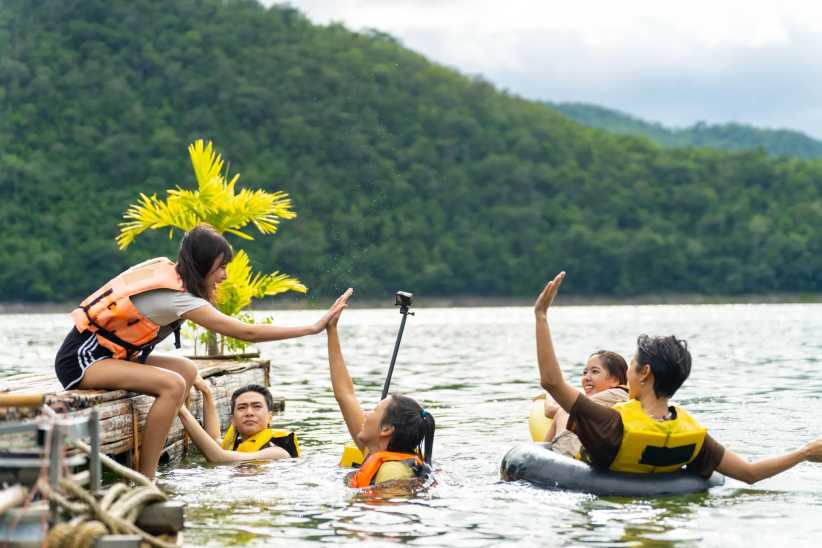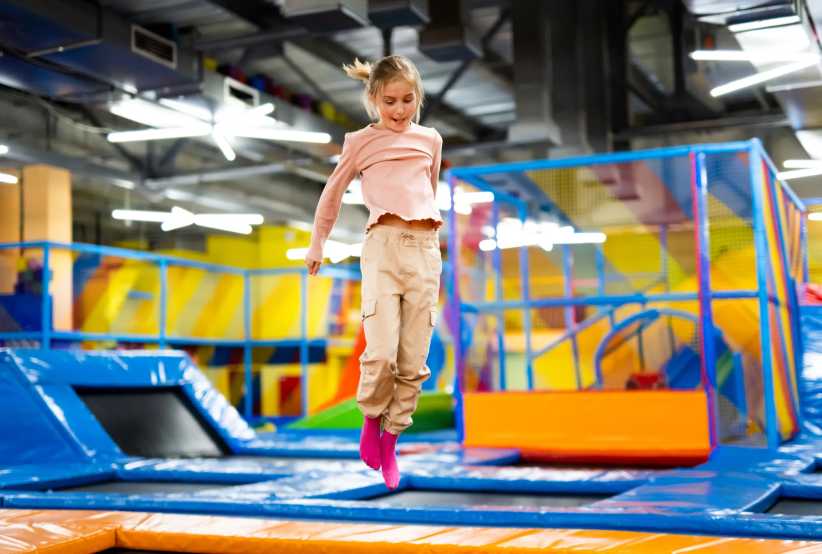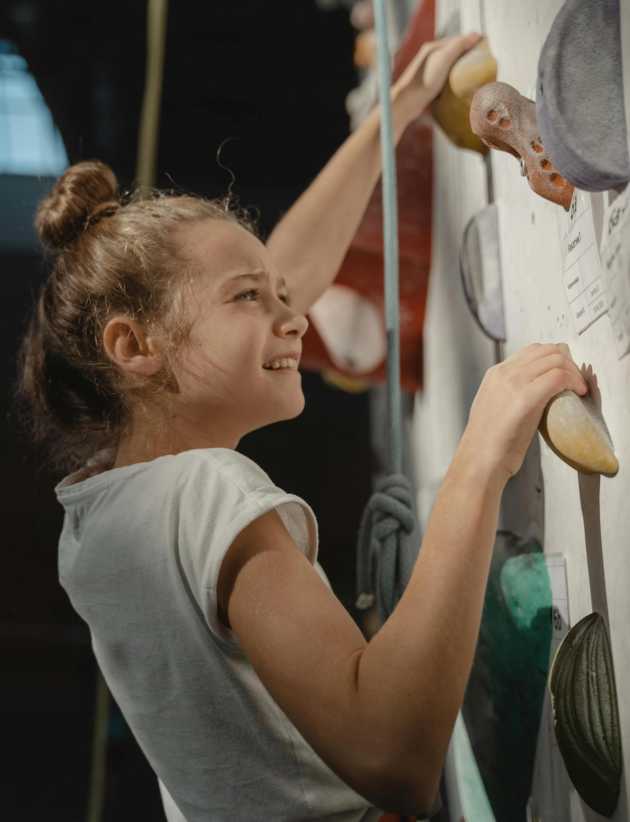Football, hockey, and basketball youth teams are in full swing, and before you know it, it’s going to be the time to plan your youngster’s athletic activities for spring and summer.
Soon, they’ll be winning trophies and ribbons. And that’s fantastic. Young athletes feel a great sense of achievement and pride when they get recognition. And when kids are involved in any kind of sport, they develop social skills and learn life-long lessons in teamwork and good sportsmanship; even how to incorporate fitness into their daily lives as they get older.
Plus, compared to two decades ago, kids are participating in organized and recreational athletics at a younger age and playing a lot more — even year-round.
All positive things, right?
Well, as they say, too much of a good thing isn’t necessarily good for you, and unfortunately, there’s a downside to all that positivity: sports injuries and emergency room visits have become all too common.
As parents, we should ask ourselves: How much is too much? Are our kids overdoing sports? And, are we partly to blame for pushing them too hard?
Sometimes, it seems as if loving, doting parents look for ways to keep their kids overly involved with after-school, weekend, and summer sports activities, because they don’t want them feeling bored, or they feel it’s good for them, and it’s what other families are doing. Perhaps it’s what they themselves were doing as children. Maybe some of us are guilty of living vicariously through their offspring. Are we lovingly encouraging them to be more and more competitive? To run or swim or throw a ball faster and harder? Urging them not to quit no matter what? Telling them that missing a game is unsportsmanlike — even if they’re feeling sore or would rather sit this one out?
Every child is different. So, ask yourself: Is my Liam overdoing it? Can Isabel’s soccer injury lead to future problems? How much is too much for my growing teen?
Numerous studies done in the U.S. and abroad have shown that there is a definite increase in sports-related injuries in young children and teens. Some can lead to life-long issues if not addressed properly.
According to the American Academy of Pediatrics, half of all sports medicine injuries in children and teens are from overuse. And they are at increased risk for overuse injuries because growing bones are less resilient.
Is your Little League pitcher or Olympic-hopeful swimmer having shoulder pain caused by repetitive motion? Watch for these types of overuse injuries, which can occur from damage to a muscle, bone, ligament, or tendon. It’s important that kids take time off from activities to allow their bodies to heal.
Don’t hesitate to talk to your pediatrician if something doesn’t look or feel right. Is there pain or discomfort in the affected area during and after physical activity that may limit your athlete’s performance? Or constant pain even while he or she is resting?
Along with physical therapy, treatment plans involve controlling painful symptoms and modifying hectic sports schedules. The more you know about potential issues and how to prevent them, the better for your sports enthusiast.
According to www.healthychildren.org, excessive training programs are a no-no. And make sure your budding athletic star has enough time to heal from a sports injury. It’s all about a commonsense approach, and experts say the key to preventing overuse injuries is maintaining a healthy balance of activities.
Doctors are warning about those long-term health issues from overuse in youth sports, especially for those who suffer from bone, joint, and spine-related injuries while playing, according to a study from the Centre for Sports and Exercise Medicine at The London School of Medicine and Dentistry.
Weighing in on this timely and important topic with valuable suggestions for parents is Dr. Leon E. Popovitz, a top-rated orthopedic surgeon at New York Bone and Joint Specialists, a New York City-based, multi-specialty orthopedic practice providing high-quality care to its patients.
According to Dr. Popovitz, “if a young athlete, whose growth plates are still open, suffers an anterior cruciate ligament tear, then a reconstruction may often be delayed until growth plates close. This is because reconstruction when growth plates are open may affect the growth of the limb. During this time the child typically is recommended to limit sports activities. Eventually, the anterior cruciate ligament is reconstructed when the child further matures, because if the knee is unstable, then the protective cartilage will tear away and arthritis may develop at a premature age.”
When signing your kids up for youth sports, here are some things the good doctor says you should consider:
• Is your child playing multiple contact sports?
• Has your child been previously injured?
• Is she playing multiple sports in a season?
If your child is heavily involved in youth sports and has experienced injuries in the past, here is what he recommends:
• Add a non-contact sport into your child’s schedule.
• Pay attention to his body and his aches and pains.
• Make sure there is an offseason between sports, so her body can rest.
• Keep in mind that following a sports injury or an illness, a speedy return to activity depends on early recognition and treatment.
Of course, it’s always a good idea for youngsters to have an annual medical checkup before the sports season begins. Especially if they have an injury; a history of medical problems, like asthma; or are taking medicines regularly.
So, what is considered too much when it comes to youth sports?
“It has been documented that excessive participation for children in one sport (as opposed to various sports) increases the chance of injury,” says Dr. Popovitz. “Examples include Little League elbow and Little League shoulder. These are painful conditions that occur from excessive throwing. Often treated very well with rest.”
In his practice, he says he is finding overuse injuries, such as Little League shoulder, more and more common.
Parents and caretakers should also keep an eye out for these other issues:
• Inability to fully move a joint, arm, or leg.
• Inability to stand or walk.
• Joint swelling, locking, or instability.
• Visible deformity or mass in arms, legs, or joints.
• Back or neck pain, especially if accompanied by numbness, weakness, or pain that runs down the arm or leg.
• Pain that does not go away.
• Pain that disrupts activity or sleep.
Remember, kids bones are still forming and are more vulnerable to injuries.
“Often, when there is an injury but no sign of fracture in a child with open growth plates, and there is pain in or around the growth plate, then it is typically treated as a fracture. Thus, the limb is braced or casted or a sling is used to protect the growth plate. This allows healing of the growth plate,” Dr. Popovitz explains.
The doctor points out that it’s those growth plate injuries — like fractures and cartilage injuries, such as meniscus tears — that have long-term effects or cause permanent damage. He explains that ligament injuries (such an anterior cruciate ligament tear) can lead to cartilage damage. Thus, these injuries need to be addressed and treated as soon as possible.
Dr. Popovitz has performed many meniscus repairs and repaired damage to the cartilage lining (example: osteochondritis dissecans).
“This is important, because the meniscus protects the cartilage lining of the bone,” says Popovitz. “We are born with only a finite amount. So, we need to preserve that cartilage for a lifetime. So, we take that very seriously in children.
“I also perform anterior cruciate ligament reconstructions. This is particularly challenging in children with open growth plates because the surgery involves drilling holes in the bone to create new attachments of the new ligament in the proper position in the bones. Thus, in children, this procedure needs to be modified so to avoid compromising the growth plates.”
Despite the uptick in youth sports injuries, participation in sports is actually safer than ever, thanks to improvements in the quality of protective equipment, such as padding and helmets, but remember that young bodies are still prone to injury. It’s more a problem of overuse that is contributing to kids’ injuries.
Sports are wonderful, but certainly not the be all and end all. Making time to pursue other interests and different pastimes, and enjoying time with friends — or even some alone time — is also an important part of growing up.
Tammy Scileppi is a Queens-based freelance writer and journalist, parent, and regular contributor to New York Parenting.
Cover all your Cover all your bases
Before starting a sport, a pre-participation physical evaluation should be done to make sure youngsters are ready to play and compete, according to healthychildren.org. Get them checked out at least six weeks before the season begins to allow for any extra evaluation or rehabilitation.
During the season and offseason, it’s important to keep up their fitness level. Warm-up and cool-down exercises are essential. Make sure to allow time for general and sport-specific conditioning during preseason training.
And remember, great athletes — no matter their age — need a balanced diet, adequate sleep, and should be well-hydrated at all times.
Be cautious
The American Academy of Pediatrics suggests that before adolescence, young athletes should avoid specializing in one sport. So encourage them to try a variety of activities, and consider the following:
• They should play one sport no more than five days per week.
• Sign them up for only one team and one sport per season.
• Cross-train. Make sure your kids vary their endurance workouts to include multiple different activities, like swimming, biking, or elliptical trainers.
• Keep practice fun and age appropriate.
Burnout
Burnout (overtraining syndrome) includes mental, physical, and hormonal changes that can affect your child’s performance (especially during puberty). Over-planning sports activities seems to be based on today’s “keep ’em busy and active” mindset. So, what do you do if your child wants to quit?
First of all, don’t panic! Talk about it, and find out why and what happened. There’s usually a good reason and they should be part of the decision-making process. If you feel it may help, have a talk with their coach.
Two in five youngsters drop out of a sports program, according to the American Psychological Association. Reasons most often include:
• Lack of enjoyment
• Loss of interest
• Conflicts with the coach
• Would rather play another sport
• Too much stress and pressure
• Not performing up to the standards they’ve set for themselves
• Not enough playing time
• Too much else going on in their lives
• An overly competitive atmosphere
• Pain or discomfort














